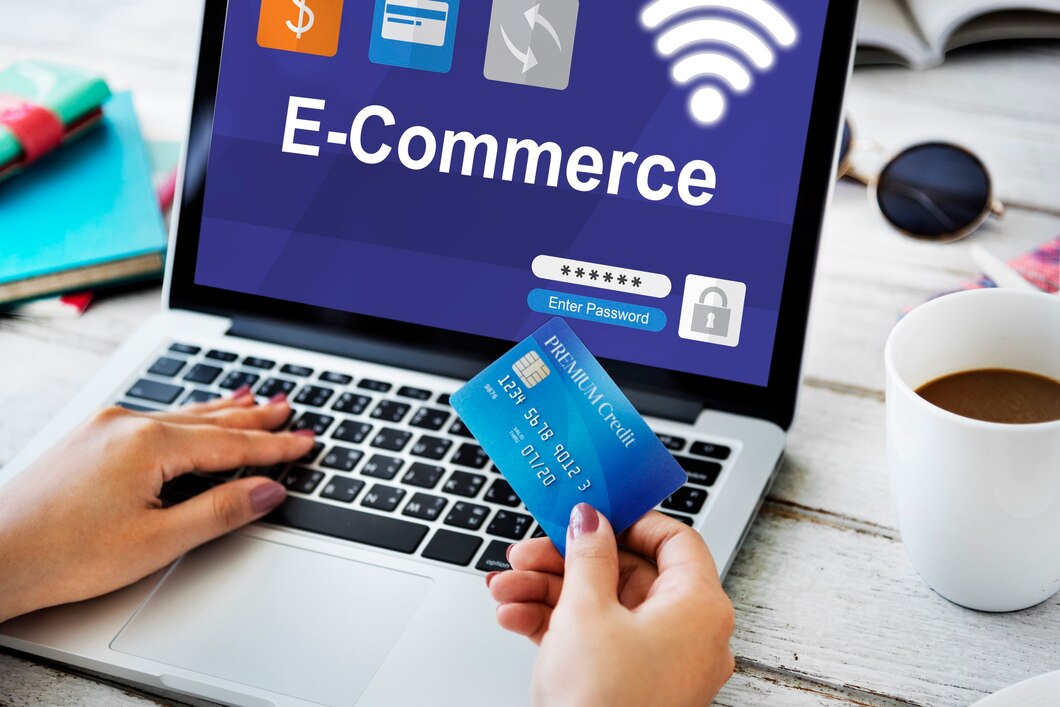E-commerce is transforming the way businesses operate globally, and Botswana is no exception. The growth of internet penetration, the adoption of digital payment systems, and changing consumer habits are driving the rise of online shopping in the country. For entrepreneurs, this represents a significant opportunity to tap into a dynamic and expanding market.
This article explores the rise of e-commerce in Botswana, its potential for entrepreneurs, and practical steps to succeed in this space.
The Growth of E-Commerce in Botswana
Over the past few years, e-commerce has gained traction in Botswana due to several factors:
- Increased Internet Access
Botswana’s internet penetration has been steadily rising, thanks to government initiatives and affordable mobile data plans. More consumers now have access to online platforms, enabling them to shop from the comfort of their homes. - Mobile-First Economy
The widespread use of smartphones has made mobile commerce (m-commerce) a key driver of e-commerce growth. Most consumers browse and shop via mobile devices, highlighting the importance of mobile-friendly platforms. - COVID-19 Pandemic
The pandemic accelerated the shift to e-commerce as lockdowns and social distancing measures limited physical interactions. Businesses quickly adapted by moving online to reach their customers. - Growing Digital Payment Adoption
Payment solutions like Orange Money, MyZaka, and mobile banking apps have made it easier for consumers to pay for goods and services online. - Supportive Government Policies
Initiatives like the Digital Transformation Strategy aim to create a conducive environment for e-commerce growth by improving digital infrastructure and encouraging entrepreneurship.
Key Benefits of E-Commerce for Entrepreneurs in Botswana
- Wider Market Reach
E-commerce allows businesses to reach customers beyond their local areas, expanding their customer base both nationally and internationally. - Lower Operational Costs
Online stores eliminate the need for physical retail spaces, reducing overhead costs significantly. - 24/7 Availability
Unlike brick-and-mortar stores, e-commerce platforms operate round the clock, providing customers with the convenience of shopping anytime. - Enhanced Customer Insights
E-commerce platforms provide data on customer behavior, preferences, and buying patterns, enabling entrepreneurs to tailor their offerings effectively. - Scalability
E-commerce businesses can scale more easily than physical stores by leveraging digital tools to manage increased demand.
Challenges Facing E-Commerce in Botswana
- Limited Digital Literacy
While internet penetration is improving, digital literacy remains a challenge for some consumers and entrepreneurs. - Logistics and Delivery Issues
Ensuring timely and reliable delivery, especially to remote areas, is a significant hurdle. - Trust and Security Concerns
Some consumers are hesitant to shop online due to fears of fraud and data breaches. - High Data Costs
Although data costs have decreased over time, they remain a barrier for some potential customers. - Competition from Established Players
Entrepreneurs often face competition from well-established e-commerce platforms, both locally and internationally.
Steps for Entrepreneurs to Succeed in Botswana’s E-Commerce Sector
1. Build a User-Friendly Online Store
- Choose a reliable e-commerce platform like Shopify, WooCommerce, or Wix.
- Ensure your website is mobile-responsive and easy to navigate.
- Offer multiple payment options, including mobile money and credit cards.
2. Invest in Digital Marketing
- Use social media platforms like Facebook, Instagram, and TikTok to reach potential customers.
- Leverage Google Ads and search engine optimization (SEO) to drive traffic to your site.
- Offer promotions, discounts, and loyalty programs to attract and retain customers.
3. Focus on Customer Experience
- Provide clear product descriptions, quality images, and transparent pricing.
- Offer excellent customer support through live chat, email, or WhatsApp.
- Implement a hassle-free return and refund policy to build trust.
4. Collaborate with Reliable Logistics Providers
- Partner with local courier services to ensure timely and cost-effective deliveries.
- Explore options for same-day or next-day delivery to enhance customer satisfaction.
5. Leverage Social Commerce
- Utilize platforms like Facebook Marketplace and Instagram Shops to sell products directly through social media.
- Engage with customers through interactive posts, stories, and live streams.
6. Ensure Security and Compliance
- Use secure payment gateways and SSL certificates to protect customer data.
- Comply with Botswana’s data protection regulations to build consumer trust.
7. Monitor Performance and Optimize
- Use analytics tools to track website traffic, sales, and customer behavior.
- Continuously optimize your platform and marketing strategies based on insights.
Examples of Successful E-Commerce Ventures in Botswana
- Local Marketplaces
Platforms like Kamoso Marketplace and Brastorne’s mAgri have created digital spaces for small businesses and farmers to sell their products online. - Fashion and Apparel Stores
Online boutiques like Seagirl Online Store have successfully tapped into the fashion market by offering trendy and affordable clothing. - Food Delivery Platforms
Services like Yamee and MyFoodness have revolutionized the way Batswana order food, making dining more convenient. - Tech and Electronics Retailers
Businesses like Botswana Gadgets have gained traction by offering tech products online with nationwide delivery options.
The Future of E-Commerce in Botswana
The e-commerce landscape in Botswana is poised for significant growth. Key trends to watch include:
- Increased Mobile Commerce
As smartphone penetration grows, mobile commerce will dominate the e-commerce sector. - Integration of AI and Chatbots
AI-powered chatbots will enhance customer service by providing instant assistance and personalized recommendations. - Expansion of Cross-Border Trade
Botswana’s entrepreneurs can tap into regional markets through platforms like the African Continental Free Trade Area (AfCFTA). - Emergence of Niche Markets
Specialized online stores focusing on unique products or services will gain popularity. - Sustainable E-Commerce Practices
Businesses will adopt eco-friendly packaging and delivery methods to align with global sustainability goals.
The rise of e-commerce in Botswana offers a wealth of opportunities for entrepreneurs ready to embrace digital transformation. By investing in user-friendly platforms, leveraging digital marketing, and focusing on customer experience, businesses can thrive in the competitive online marketplace.
E-commerce is not just a trend; it is the future of business. Entrepreneurs who adapt to this shift will not only survive but thrive in Botswana’s rapidly evolving digital economy.






